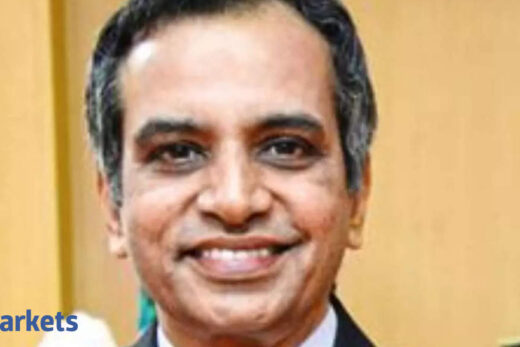Buffett and Berkshire’s vice chairman, Charlie Munger, appeared upbeat after the earnings report at a three-hour question-and-answer session for shareholders, in which they talked about the economy’s “red hot” pace now, and how different it was from the early weeks of the pandemic.
“We’re seeing substantial inflation,” Buffet said, adding that Berkshire had significant operations in housing and was seeing the cost of construction materials rising.
“We’re raising prices, people are raising prices to us. And it’s being accepted,” he said. “We weren’t expecting it.”
The annual investor meeting gives shareholders a chance to submit questions about the company’s performance, as well as other topics such as climate change and whether Berkshire made mistakes in responding to the pandemic’s initial blow to the U.S. economy in March 2020
When one shareholder asked why Buffett had recommended a “no” vote to two proxy initiatives on climate change, he said it would be “asinine, frankly,” to do otherwise. He said that Berkshire had more than 1 million shareholders and that only three of them had bothered to write to him about their environmental concerns.
“Overwhelmingly, the people that bought Berkshire with their own money voted against those policies,” he said. “The votes for it were from people who never put a dime of their own money into Berkshire. And I don’t think they read our annual reports. I don’t think they read the reports of Berkshire Hathaway Energy.”
If they had, he said, they would know that Berkshire had begun planning for shutting down coal-fired power plants in 2007, and that the process had to happen in a systematic way, so that homeowners and businesses were not deprived of electricity.
“They’re nice people, but they want us to answer a bunch of questionnaires their way,” he said, adding that Berkshire had always complied with environmental mandates from the government, even if they were at odds with business imperatives.
“We do some other asinine things, because we’re required to do them,” he said. “We’ll do whatever is required.”
When another shareholder asked why Berkshire had sold its airline stocks “near the low” last year after the government threw the major airlines a lifeline, Buffett said he agreed that providing emergency support to large companies “was a fine public policy” that he wished “could go to every restaurant and dry cleaner and every small business that really was out of business” last year.
He said that when Congress had decided the airlines deserved taxpayer support, there wasn’t a backlash, the way there had been in the financial crisis of 2008, when Congress used taxpayer money to bail out U.S. banks. The public might not have been so tolerant if the airlines had “a very, very, very rich shareholder” who benefited from the lifeline, he said.
“I could just see the headlines now,” he said. “You’re actually looking at, probably, a different result than if we kept our stock.”
Berkshire’s annual investor meeting has for decades attracted Buffett’s faithful followers to the company’s hometown, Omaha, Nebraska, to celebrate one of the world’s best-known investors.
This year, however, it was again held virtually, bowing to pandemic travel and gathering restrictions. And for the first time, it was held not in Omaha, but in Los Angeles, where Munger, Berkshire’s 97-year-old vice chairman, lives.
Berkshire’s annual meetings are known for offering a forum for the company’s shareholders to ask the 90-year-old Buffett anything on their minds.
Buffett and Munger did not discuss succession plans, but they were joined in the question-and-answer session by Ajit Jain, head of Berkshire’s insurance operations, and Gregory Abel, head of non-insurance operations, in an apparent nod to the company’s leadership in the future.
Abel offered a description of Berkshire’s energy operations, and Jain said he had a very simple response to a question on whether the company would insure efforts by Elon Musk, head of SpaceX and Tesla, to colonize other planets: “No.”
At one point during the meeting, Buffett and Munger called attention to an essay in The Washington Post by former Treasury Secretary Larry Summers on the risk that President Joe Biden’s $1.9 trillion fiscal stimulus would overheat the economy and fuel inflation. They did not go so far as to say they agreed with Summers but said they thought he was “very smart.”
Berkshire’s earnings report came out early in the day. Using Berkshire’s preferred financial metric, operating earnings, the company showed a nearly 19% year-on-year gain as its wide array of subsidiaries — from energy production to the Burlington Northern Santa Fe railroad to consumer brands — improved their performances.
Among Berkshire’s businesses that saw the biggest improvements in the first quarter was the railroad, which benefited from higher freight volumes as the U.S. economy rebounded from the pandemic. Berkshire’s building products and consumer subsidiaries also posted higher sales, as housing construction and retail buying picked up.
Other parts of Buffett’s empire continued to show strain, however, particularly industrial manufacturers like Precision Castparts, whose aerospace parts were in lower demand because of the COVID-related drop in travel. Buffett stressed that he thought Precision Castparts’ management had been doing a good job at a time when aviation was under pressure.
Berkshire’s vast insurance operations reflected a mixed picture. Auto insurance claims at Geico were down in the quarter, although other parts of the insurance business were hurt by increased claims tied to the destructive North American winter storm in February.
Berkshire reported $2.8 billion in investment gains during the quarter, compared with $54.5 billion in losses in the 2020 quarter.
The conglomerate also bought back $6.6 billion in stock during the quarter, as Buffett continues to spend his company’s enormous cash hoard — more than $145 billion — on repurchasing Berkshire shares rather than striking huge acquisitions.



